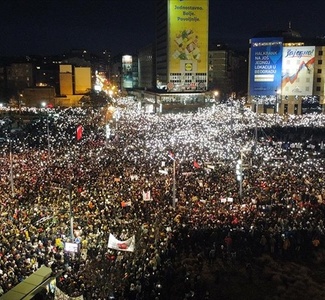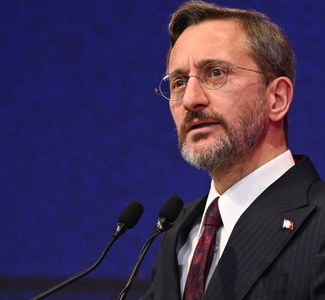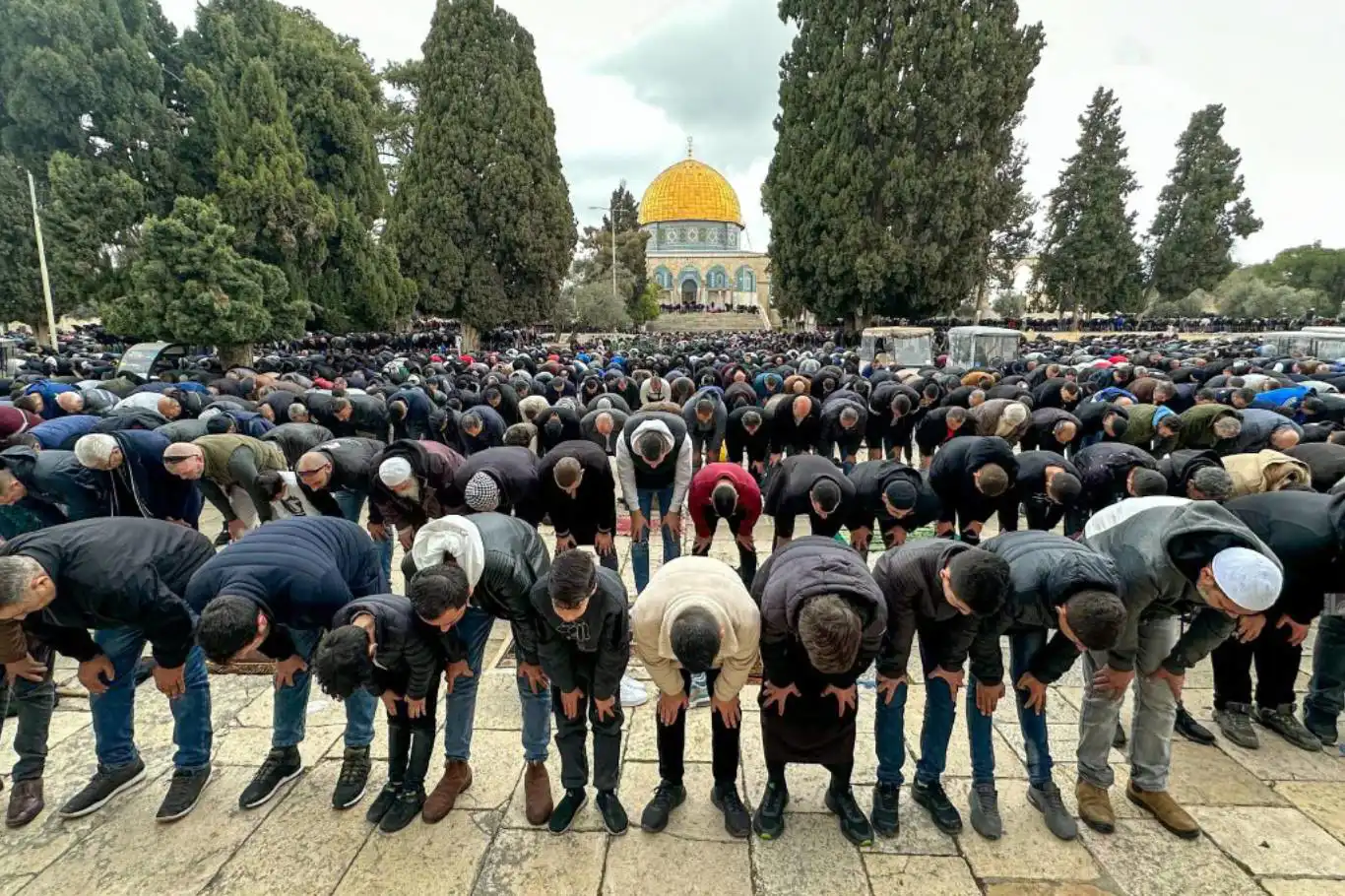Eid al-Adha: A celebration of sacrifice and spiritual significance
More than two billion Muslims on Wednesday will celebrate Eid Al Adha or the Feast of Sacrifice which is the second and the largest of the two main holidays in Islam.

 Google News'te Doğruhaber'e abone olun.
Google News'te Doğruhaber'e abone olun. Eid al-Adha, also known as the Festival of Sacrifice, is a significant religious observance celebrated by Muslims worldwide.
This annual festival holds great importance as it commemorates the willingness of the Prophet Ibrahim (Abraham) to sacrifice his son as an act of obedience to Allah the Almighty.
Eid al-Adha traces its origins back to the story of Prophet Ibrahim, who had a recurring dream in which he was instructed to sacrifice his son, Ismail (Ishmael). In unwavering devotion, both Ibrahim and Ismail were willing to fulfill Allah's command. However, at the last moment, God replaced Ismail with a ram, signifying the acceptance of Ibrahim's willingness to sacrifice. This pivotal event became a symbol of profound faith, trust, and submission to the Divine will.
Eid al-Adha occurs on the 10th day of the Islamic month of Dhul Hijjah, following the completion of the Hajj pilgrimage to Mecca. It is a time of joy, gratitude, and community gatherings. Families come together to offer prayers, exchange heartfelt greetings, and share meals.
Central to the observance of Eid al-Adha is the tradition of sacrificing animals, known as Qurbani or Udhiyah. Muslims who can afford it sacrifice a lamb, goat, cow, or camel, symbolizing their willingness to give up something of value for the sake of God. The meat from the sacrificed animal is divided into three parts: one-third is given to the poor and needy, one-third is shared with relatives and friends, and the remaining third is kept for personal consumption.
The act of sacrificing animals during Eid al-Adha serves several profound purposes. Firstly, it is a demonstration of obedience to Allah's command, mirroring Prophet Ibrahim's unwavering faith. It signifies Muslims' readiness to submit to Allah's will and put their own desires aside. The act of sacrifice encourages believers to reflect upon their own sacrifices, both tangible and intangible, in their journey of faith.
Secondly, the distribution of meat to the less fortunate and those in need promotes social cohesion, compassion, and empathy within the community. It emphasizes the Islamic principle of caring for the marginalized and highlights the importance of sharing one's blessings with others. Through this act of generosity, Muslims foster unity, eliminate barriers of class or wealth, and promote a sense of belonging.
Lastly, Eid al-Adha serves as a reminder of the transient nature of life and the value of gratitude. The sacrifice made during this festival encourages Muslims to appreciate the blessings bestowed upon them by Allah and to acknowledge the impermanence of worldly possessions. It instills a sense of humility, reminding individuals of their responsibility to use their resources to benefit others and seek closeness to God.
Eid al-Adha, the Festival of Sacrifice, holds deep historical and spiritual significance for Muslims worldwide. It commemorates the extraordinary faith and obedience of Prophet Ibrahim, symbolizing Muslims' unwavering devotion to Allah the Almighty.
The act of sacrificing animals during this festive occasion promotes acts of kindness, compassion, and sharing within the community. It serves as a reminder of the transient nature of life and encourages gratitude for the blessings bestowed upon individuals. Through the celebration of Eid al-Adha, Muslims strive to strengthen their faith, foster unity, and embody the values of sacrifice, compassion, and generosity. (ILKHA)



















































